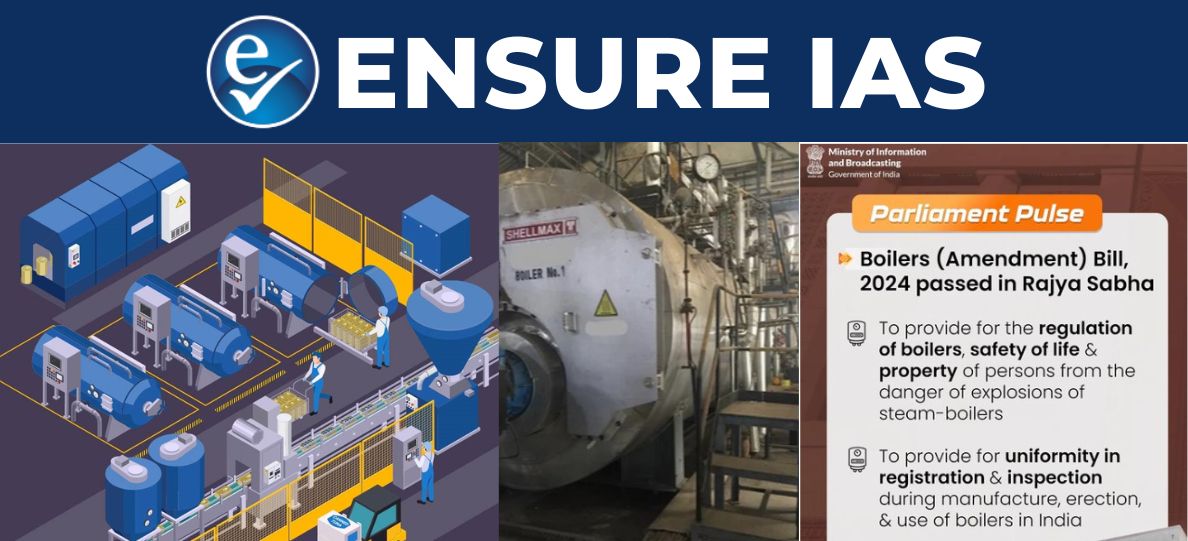- Courses
- GS Full Course 1 Year
- GS Full Course 2 Year
- GS Full Course 3 Year
- GS Full Course Till Selection
- MEP (Mains Enrichment Programme) Data, Facts
- Essay Target – 150+ Marks
- Online Program
- GS Recorded Course
- NCERT- First Ladder
- Polity
- Geography
- Economy
- Ancient, Medieval and Art & Culture AMAC
- Modern India, Post Independence & World History
- Environment
- Governance
- Science & Technology
- International Relations and Internal Security
- Disaster Management
- Ethics
- Current Affairs
- Indian Society and Social Issue
- CSAT
- 5 LAYERED ARJUNA Mentorship
- Public Administration Optional
- ABOUT US
- OUR TOPPERS
- TEST SERIES
- FREE STUDY MATERIAL
- VIDEOS
- CONTACT US
The Boilers Bill, 2024
The Boilers Bill, 2024
07-02-2025

- In December 2024, the Boilers Bill, 2024 passed in the Rajya Sabha.
- This Bill replaces the Boilers Act, 1923 and aligns with the provisions of the Jan Vishwas (Amendment of Provisions) Act, 2023.
- The primary objective of the Bill is to enhance the safety of life and property by preventing explosions and accidents involving steam boilers.
Key provisions of the Bill
- Regulation: Centre will constitute Central Boilers Board to regulate the design, manufacture, erection and use of boiler and boiler components.
- Inspection: Inspections can be carried out by State-appointed Inspectors or authorized third parties.
- Ease of Doing Business (EoDB):
- In the Boilers Act, 1923, there were 7 offences, but the new Bill retains only 4 serious offences that involve loss of life or property. These offences are subject to criminal penalties.
- For non-criminal offences, penalties will be in the form of fines, but these will now be levied through an executive mechanism rather than going through courts, which simplifies the process and improves Ease of Doing Business.
Issues associated with Bill
- Safety Concerns: The Bill allows state governments to exempt certain areas from its provisions. This raises concerns about whether safety measures will be effectively implemented in these exempted zones.
2. Limited Judicial Recourse:
- Decisions made by the central government and state-appointed inspectors cannot be challenged in regular courts.
- Aggrieved individuals must file writ petitions in the High Courts under Article 226 of the Constitution.
3. Hindrance to Ease of Doing Business (EoDB):
- No specific timelines have been set for:
- Inspections
- Approvals for alterations, repairs, or erection of boilers
- This lack of clarity could delay business operations.
|
About Boilers
|
|
Also Read |
|




